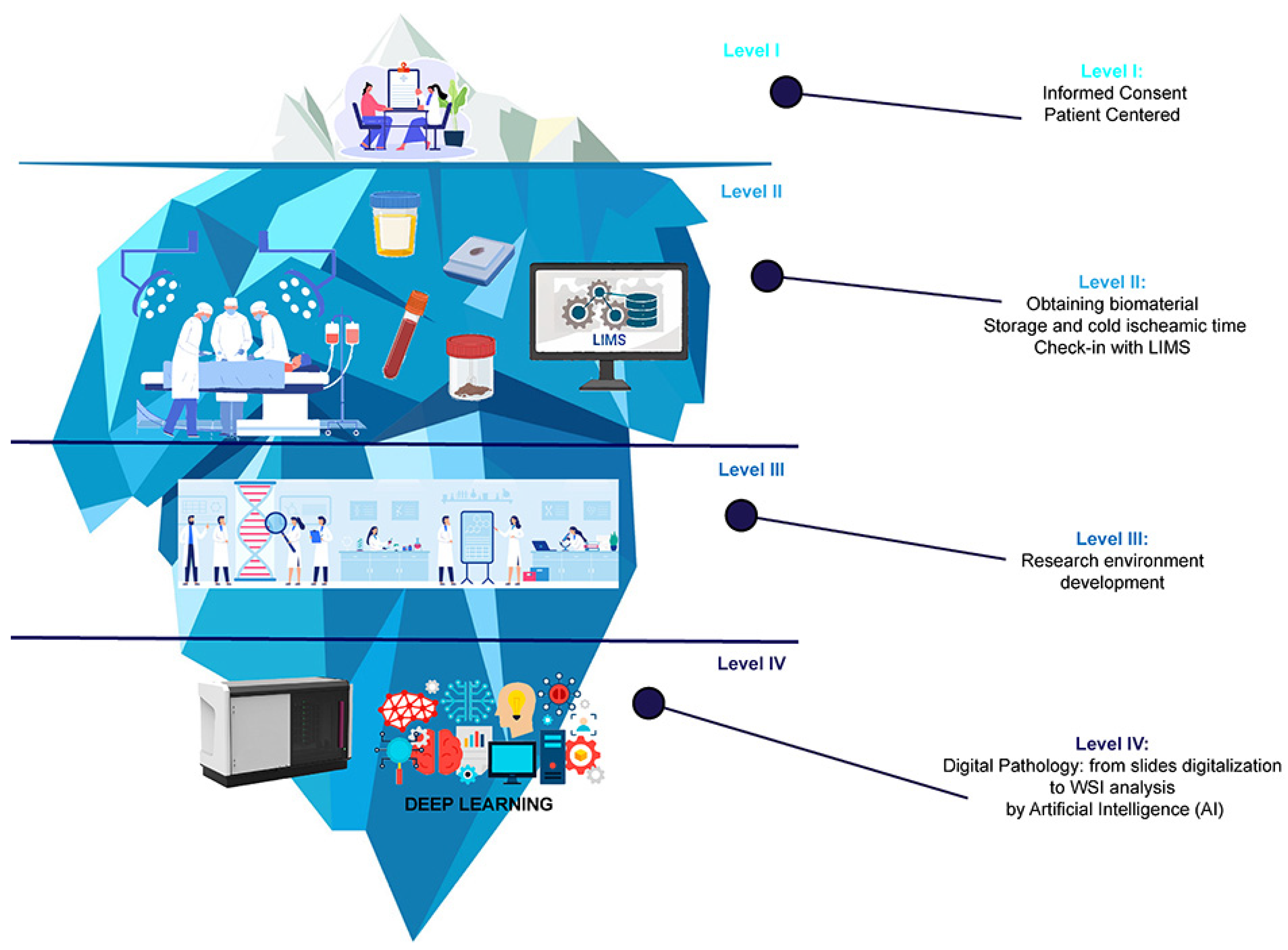Biobanks are vital research infrastructures aiming to collect, process, store, and distribute biological specimens along with associated data in an organized and governed manner. Exploiting diverse datasets produced by the biobanks and the downstream research from various sources and integrating bioinformatics and “omics” data has proven instrumental in advancing research such as cancer research. Biobanks offer different types of biological samples matched with rich datasets comprising clinicopathologic information.

The journey of cancer research through the integration of Artificial Intelligence (AI) in the digital biobanking process
As digital pathology and artificial intelligence (AI) have entered the precision medicine arena, biobanks are progressively transitioning from mere biorepositories to integrated computational data banks. Consequently, the application of AI and machine learning on these biobank datasets holds huge potential to profoundly impact cancer research.
Read this paper where the researchers explore how AI and machine learning can respond to the digital evolution of biobanks with flexibility, solutions, and effective services. These cutting-edge technologies can address the challenges faced by translational and clinical research, enhancing their capabilities in data management, analysis, and interpretation. By leveraging AI, biobanks can unlock valuable insights from their vast repositories, enabling the identification of novel biomarkers, prediction of treatment responses, and ultimately facilitating the development of personalized cancer therapies. The integration of biobanking with AI has the potential not only to expand the current understanding of cancer biology but also to pave the way for more precise, patient-centric healthcare strategies.
